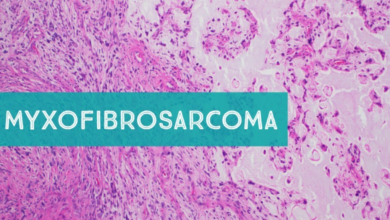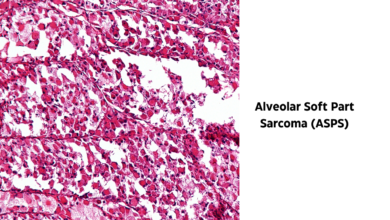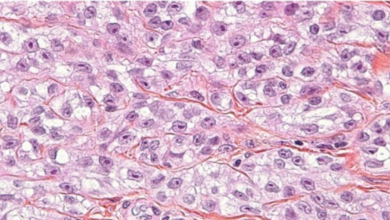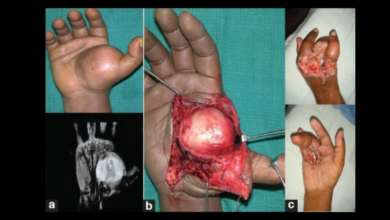
What is Dermatofibrosarcoma Protuberans (DFSP)?
Dermatofibrosarcoma Protuberans (DFSP) is a rare type of skin cancer that originates in the dermis, the middle layer of the skin. It typically appears as a slow-growing, firm, and often purplish or reddish patch on the skin.
Types of DFSP
While there aren’t distinct subtypes, DFSP can be categorized based on its aggressiveness:
• Classic DFSP: A less aggressive form that typically grows slowly.
• Fibrosarcomatous DFSP (FS-DFSP): A more aggressive form with a higher risk of recurrence and metastasis.
Symptoms of DFSP
• A slowly growing, firm, and often purplish or reddish patch on the skin
• The patch may become raised or nodular over time
• Itching or pain may be present
Causes of DFSP
The exact cause of DFSP is unknown. However, it’s believed to be linked to a specific genetic mutation.
Who Can Suffer from DFSP?
DFSP can affect people of all ages, but it’s most common in young adults.
Diagnostic Tests for DFSP
• Physical examination: A doctor will examine the affected area.
• Biopsy: A small tissue sample is removed and examined under a microscope.
• Imaging tests: Such as CT scans or MRIs may be used to assess the extent of the tumor.
Stages of DFSP
DFSP is typically not staged in the traditional sense. Instead, it’s often classified based on its size, depth, and the presence of any metastasis.
Treatment of DFSP
The primary treatment for DFSP is surgery to remove the tumor. However, due to the tumor’s tendency to recur, wide local excision is often necessary. In some cases, Mohs micrographic surgery may be used to ensure complete removal of the tumor with minimal scarring.
Diet and DFSP Prevention
While a healthy diet can support overall health and strengthen the immune system, it cannot directly prevent DFSP. However, maintaining a balanced diet can help manage any underlying health conditions and improve overall well-being.
Here are some general dietary recommendations:
• A balanced diet: A diet rich in fruits, vegetables, and whole grains can help.
• Limit processed foods and sugary drinks: These can contribute to weight gain and other health problems.
• Maintain a healthy weight: Obesity is linked to an increased risk of certain cancers
Overall Survival Rate of DFSP
The overall survival rate for DFSP is generally good, especially when the tumor is treated early and completely. However, there is a risk of recurrence, particularly in cases of aggressive forms of the disease.
Doctor to Consult
A dermatologist or a surgical oncologist is the best doctor to consult for DFSP.
Diseases Associated with DFSP
DFSP is not directly associated with other specific cancers. However, certain genetic factors may increase the risk of developing the disease.
How to Prevent DFSP
While there’s no guaranteed way to prevent DFSP, early detection and timely treatment are crucial. Regular skin self-exams and dermatologist check-ups can help identify any suspicious skin lesions.





